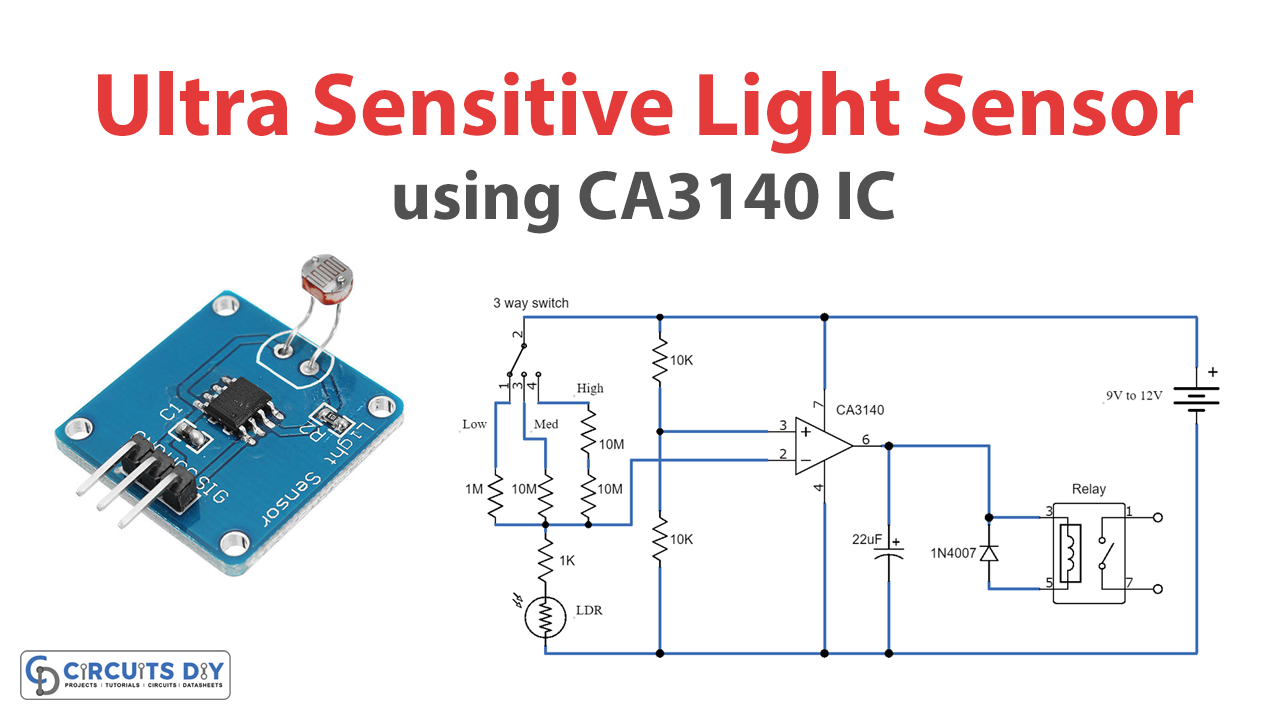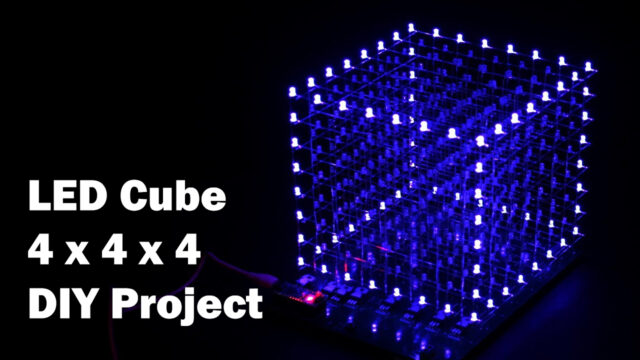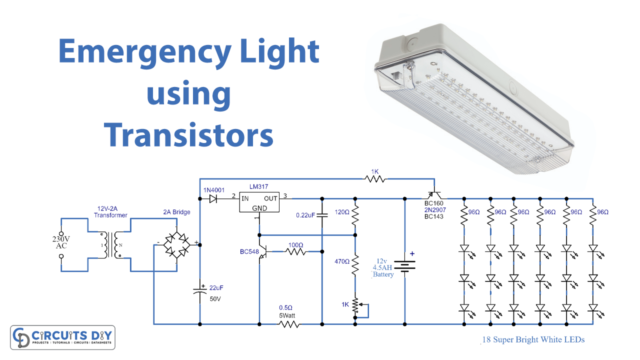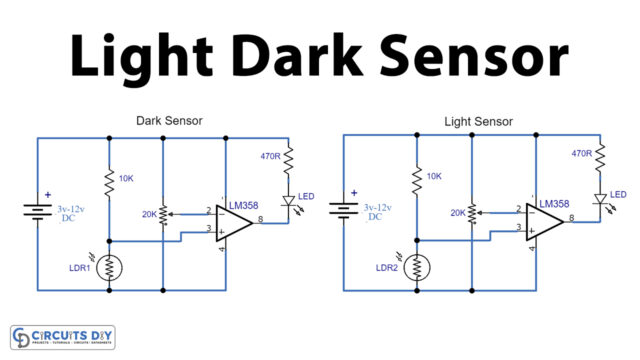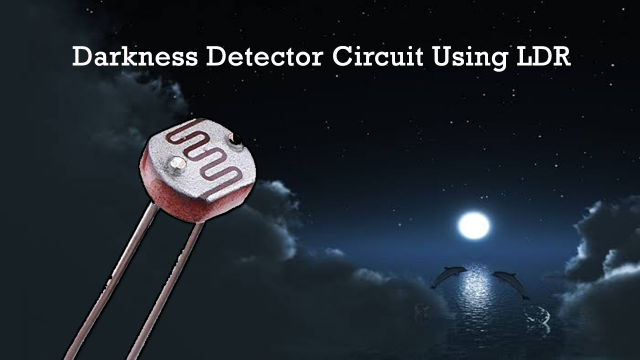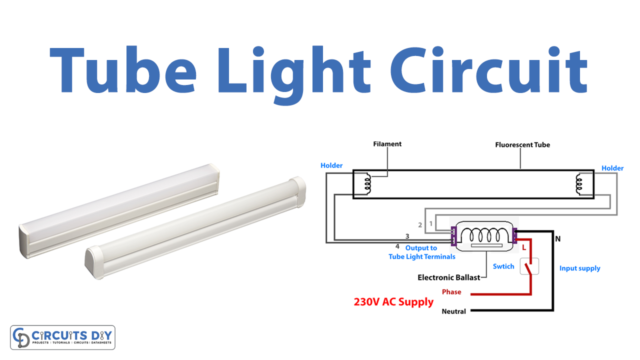Light sensor circuits are used to detect the presence of light or darkness around them. They are mostly used to control electrical loads such as lights, fans, etc. In this tutorial, we are going to make an Ultra Sensitive Light Sensor circuit. This circuit is different than the usual light sensor circuits because it is super sensitive. It can detect a very small amount of light in complete darkness even from a faraway distance. It is capable of even detecting a small amount of moonlight.
The main component of this circuit is a CA3140 IC. It is a BiMOS operational amplifier that has MOSFET input and bipolar output. This IC requires a very low input current and has a very fast response with high-performance speed. There are bipolar transistors in its output and they provide protection against damage from load short-circuiting.
Hardware Components
The following components are required to make Ultra Sensitive Light Sensor Circuit
| S.no | Components | Value | Qty |
|---|---|---|---|
| 1. | Battery | 9-12V DC | 1,1 |
| 2. | IC | CA3140 | 1 |
| 3. | LDR | – | 1 |
| 4. | Resistors | 1M, 10M, 10K | 1, 3, 2 |
| 5. | Electrolytic Capacitor | 22uF | 1 |
| 6. | Diode | 1N4007 | 1 |
| 7. | Connecting Wires | – | 1 |
| 8. | Breadboard | – | 1 |
| 9. | Relay | 12V | 1 |
CA3140 Pinout
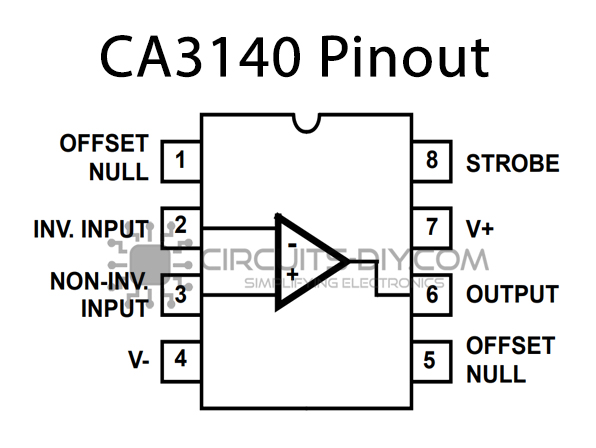
For a detailed description of pinout, dimension features, and specifications download the datasheet of CA3140
Ultra Sensitive Light Sensor Circuit

Working Explanation
This circuit can be operated through 9-12V batteries. It has three sensitivity levels i.e., low, medium, and high. You can select your desired sensitivity level. The CA3140 IC is working in comparator mode. The three levels of sensitivity depend on the three resistors which are 1M, 10M, and 20M (or two 10M) ohms. These three different values of resistors provide different levels of sensitivity.
A 22uF electrolytic capacitor protects the relay from chattering. 1N4007 diode is used across the relay to protect the IC from the back EMF of the relay. A relay switch is used at the output of this circuit so that you can connect your AC/DC device to operate with the help of this sensor.
Applications and Uses
These circuits are ideal to use when more sensitivity than a regular light sensor circuit is needed.

